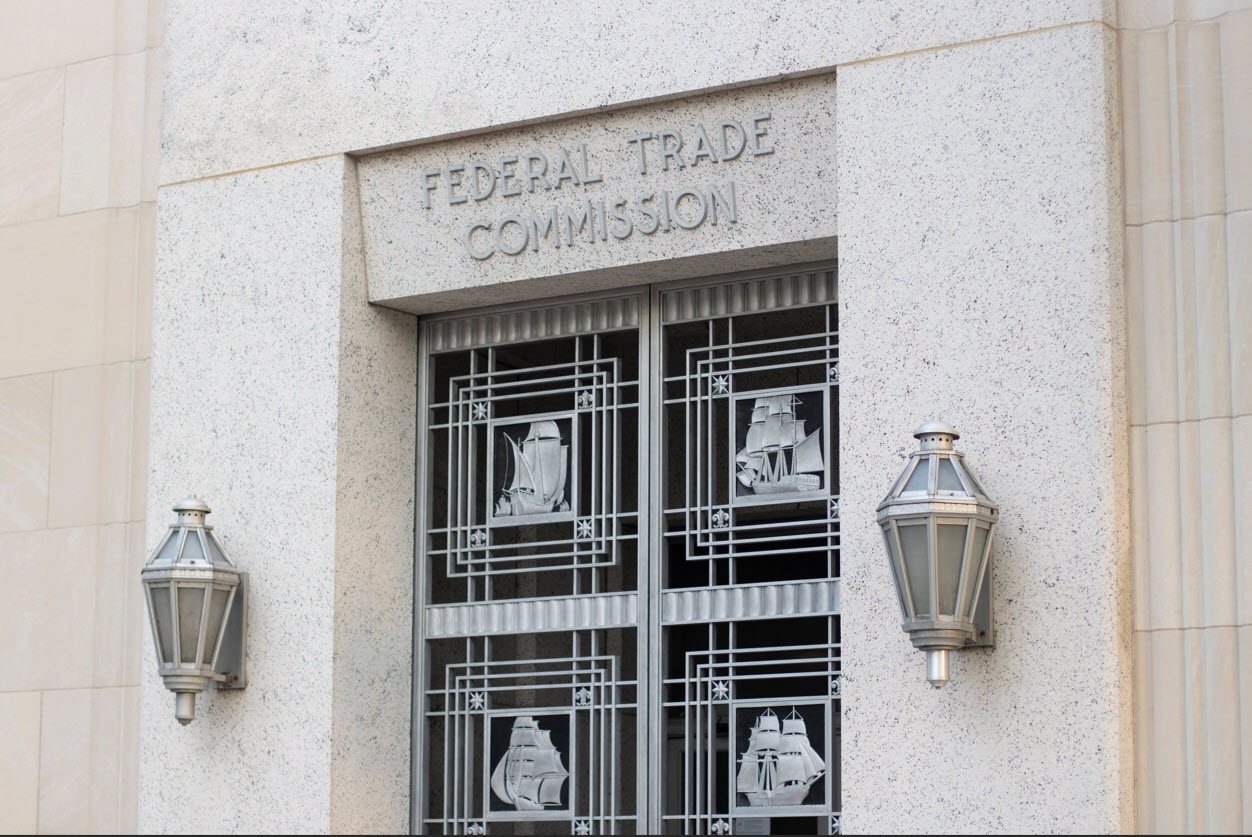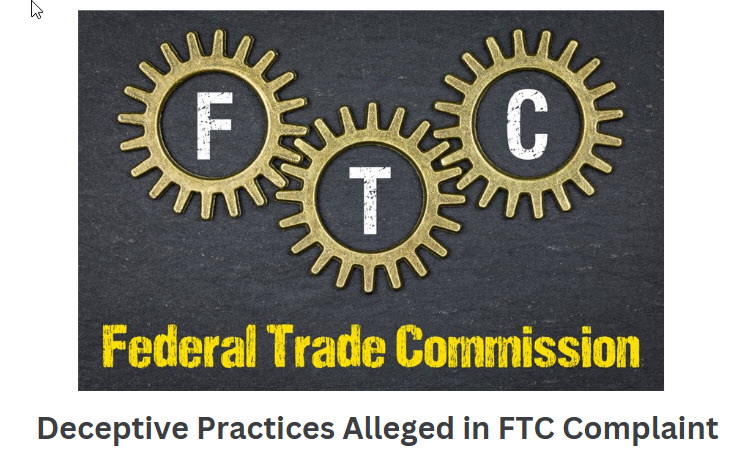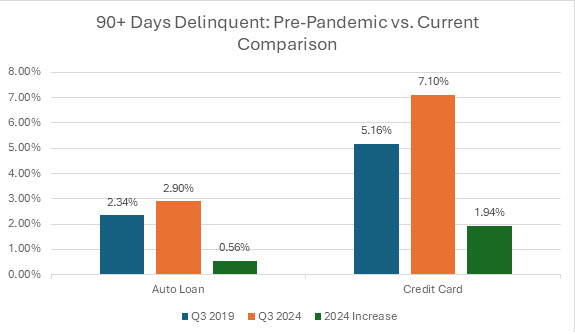The Federal Trade Commission (FTC) has recently submitted its annual report to the Consumer Financial Protection Bureau (CFPB), detailing its enforcement and related activities for 2023. This report covers the FTC’s efforts under the Truth in Lending Act (TILA), the Consumer Leasing Act (CLA), and the Electronic Fund Transfer Act (EFTA), reflecting the changes instituted by the Dodd-Frank Act.
Signed into law on July 21, 2010, the Dodd-Frank Act significantly restructured the financial services law enforcement and regulatory system. It granted the CFPB rulemaking and enforcement authority for TILA, CLA, and EFTA, while the FTC retained its authority to enforce these acts and their respective regulations. Additionally, the Act empowered the FTC to enforce any CFPB rules applicable to entities within its jurisdiction, which include most providers of financial services that are not banks, thrifts, or federal credit unions.
In accordance with a memorandum of understanding that the FTC and CFPB entered in 2012 and reauthorized in 2015 and 2019, the two agencies have been coordinating law enforcement, rulemaking, and other activities. In 2023, the FTC engaged in various initiatives related to the advertisement, extension, and other aspects of consumer credit and leasing covered by TILA and Regulation Z, and CLA and Regulation M.
Combatting Auto Retail Scams
In 2023, the FTC finalized a new rule to address common illegal tactics in the sale, financing, or leasing of motor vehicles. This rule targets bait-and-switch tactics and hidden fees that often slip past consumers. Unscrupulous dealers frequently add substantial costs to purchase contracts without consumer knowledge, distracting them with complex transaction details like monthly payments.
The new rule is projected to save consumers over $3.4 billion and 72 million hours annually in vehicle shopping time. It has received strong support from the Department of Defense, emphasizing its importance for service members and their families in protecting them from predatory practices.
Key provisions of the CARS Rule include:
- Prohibiting Misrepresentations: Dealers must not misrepresent critical information, including price and cost.
- Transparent Pricing: Dealers must provide the actual offering price and inform consumers that optional add-ons are not mandatory. They must also disclose the total payment amount when discussing monthly payments.
- Ban on Non-Beneficial Add-Ons: Dealers cannot charge for add-ons that do not benefit consumers, such as service contracts for oil changes on electric vehicles.
- Informed Consent: Dealers must obtain consumers’ explicit, informed consent for all charges.
The FTC received extensive feedback on the proposed rule from consumers, servicemembers, veterans, and auto dealers. After careful review, the FTC made significant changes to focus on protecting consumers from common scams while ensuring fair competition among auto dealers.
Addressing Junk Fees
In 2023, the FTC proposed a rule to prohibit junk fees—hidden and bogus charges that cost consumers tens of billions of dollars annually and disadvantage honest businesses. By obscuring the total price, these fees hinder comparison shopping and penalize transparent companies. The proposed rule aims to eliminate these deceptive practices, ensuring consumers are fully aware of their costs and promoting fair competition. The notice of the proposed rule included questions for public comment.
Efforts for American Indian and Alaska Native Communities
In 2023, the FTC released a comprehensive report to Congress focusing on consumer issues impacting American Indian and Alaska Native (AI/AN) populations. This report highlights the FTC’s enforcement actions, outreach endeavors, and educational initiatives aimed at addressing various concerns such as auto purchasing and financing, predatory lending, impersonation scams, tech support scams, and romance scams.
The agency’s efforts included direct engagement with tribal leaders, community members, and advocates to better understand the challenges faced by AI/AN communities. Additionally, the report provides analysis from the FTC’s Consumer Sentinel Network database to identify trends and patterns in consumer complaints.
Furthermore, the report summarizes the FTC’s law enforcement actions targeting consumer abuses affecting AI/AN communities. Notable cases include Tate’s Auto, accused of deceptive advertising and unfair financing practices near the Navajo Nation border, and Napleton, a multistate auto dealer group charged with illegal junk fees and misleading advertising practices, violating both the FTC Act and TILA regulations.
Protecting Military Consumers
In 2023, the FTC’s Military Task Force, comprising agency representatives, focused on military consumer protection issues. This collaborative effort aims to identify the needs of servicemembers, veterans, and their families, and develop initiatives to empower them, including law enforcement actions. The FTC worked with the American Bar Association’s Standing Committee on Legal Assistance for Military Personnel (ABA LAMP) to coordinate initiatives, provide training on consumer financial issues, and address matters related to the Military Lending Act (MLA) and the Department of Defense’s military lending rule. Additionally, FTC staff participated in an interagency group coordinating with the DoD on MLA-related issues, including automobile financing, leasing, and the CARS Rule.
Updates to the Negative Option Rule
In 2023, the FTC proposed updates to its 1973 Negative Option Rule, introducing a “click to cancel” provision to ensure consumers can easily terminate subscriptions or recurring-payment programs. The proposed changes mandate sellers to provide a simple cancellation mechanism, immediately stop recurring charges upon cancellation, and obtain consumers’ express informed consent before charging them. This rule aims to combat unfair or deceptive practices related to subscriptions and memberships. Additionally, the FTC scheduled a virtual informal hearing to address comments received on the proposed amendments.
Cautioning Consumers About Payment Scams
In addition to enforcement, the FTC is committed to educating both consumers and businesses about their rights and responsibilities under TILA, CLA, and EFTA. The agency’s education efforts aim to raise awareness about issues related to truth in lending, consumer leasing, and electronic fund transfers, helping consumers make informed financial decisions.
- Payment Apps: The FTC highlighted risks associated with apps like Venmo, CashApp, and Zelle, which link to debit cards or bank accounts for quick money transfers. Scammers often exploit these apps by pretending to be loved ones in need, announcing fake prizes, or posing as banks. The article emphasized that sending money through these apps is like sending cash, making it hard to recover. Tips included verifying the recipient’s identity and avoiding payments to those insisting on gift cards, cryptocurrency, or payment apps.
- Wire Transfers: Another advisory warned about scams involving wire transfer services like MoneyGram, Ria, and Western Union, noting that once money is sent, it’s hard to retrieve. Consumers were advised never to wire money to strangers or anyone pressuring for immediate payment. The article also provided steps to take if scammed, including contacting the transfer company to reverse the transaction and reporting the incident to the FTC.
Conclusion
The Federal Trade Commission’s 2023 report to the Consumer Financial Protection Bureau underscores the agency’s robust efforts in enforcing consumer protection laws and advancing initiatives under the Truth in Lending Act (TILA), Consumer Leasing Act (CLA), and Electronic Fund Transfer Act (EFTA). Reflecting the structural changes brought about by the Dodd-Frank Act, the FTC has maintained a steadfast commitment to safeguarding consumers through rigorous enforcement, rulemaking, and education.
Key highlights from the report include the finalization of the CARS Rule to combat deceptive auto sales practices, the proposal of a rule to eliminate junk fees, and comprehensive efforts to protect American Indian, Alaska Native, and military communities from predatory practices. Additionally, the FTC proposed updates to the Negative Option Rule to facilitate easier cancellation of subscriptions and raised awareness about payment scams involving apps and wire transfers.
These initiatives reflect the FTC’s ongoing dedication to promoting transparency, fair competition, and consumer empowerment in the financial marketplace. The agency’s collaborative efforts with the CFPB and other organizations further bolster its mission to protect consumers from deceptive and unfair practices.

Author: Jennifer Evancic
Jennifer.Evancic@ResourceManagement.com
Jennifer Evancic is a third-party auditor valued by creditors and large organizations for her knowledge in call monitoring within the collections industry. With meticulous attention to detail and a firm grasp of regulatory requirements, she ensures compliance with clients’ criteria and state and federal regulations.
Jennifer audits collections calls, ensuring they meet client-specific criteria and comply with regulations, providing valuable insights and maintaining industry standards.
Beyond her auditing responsibilities, Jennifer takes the lead in organizing and facilitating monthly call calibrations. These sessions serve as a collaborative forum where clients and their vendors come together to discuss call monitoring results and address any findings or areas for improvement. Jennifer’s guidance fosters open communication and ensures alignment between clients and vendors, driving continuous improvement in collections practices.
Jennifer stays up-to-date with compliance and industry best practices by participating regularly in peer meetings, regulatory updates and industry webinars. This keeps her informed about emerging issues and ensures she remains a knowledgeable leader in collections compliance.
Sign Up for the Twice Monthly Newsletter
Just enter your email address at the top orange bar at:
Collection Compliance Experts – “The Power of Expertise: Oversight Perfected”
It’s that easy! Twice a month – we provide blog updates and Resources for the Collection and Industry Professional.
Your email is just for this newsletter. We never sell your information. No fee. Opt-out at any time.



